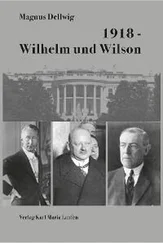1 ...7 8 9 11 12 13 ...18 That is, until she saw Albert Hoffmann. She never quite understood why he’d had such a devastating effect on her that day when she watched him saunter up the Hüschebrink, chatting with a neighbour on the way before walking over to their little group rather than continuing up the path towards his house.
‘He’s going to chase us away,’ Stefanie said.
‘Let him try,’ Carsten said, feeling manly with his can of beer, spitting on the ground.
Occasionally people passing by, on the way to or from the graveyard, gave them judging looks, muttering something disparaging about youths drinking and smoking and spitting a lot and generally disrespecting the dead. But hell, there wasn’t much else for youths to do in Eschershausen.
‘Babes, if that Herr Hoffman, the neat one there, wanted me badly enough he wouldn’t have to chase me much,’ Anika said and laughed dirtily.
All told, the adolescent group on that day consisted of three girls and five boys, a big enough number to intimidate most passersby. Not so Albert, who approached with firm steps and a serious, though not unfriendly face. Carsten and Thorsten took deep breaths to make themselves appear bigger. The two smaller boys hid behind them, and Heinz got busy with his shoelaces.
Albert got close.
‘Good afternoon,’ he said and smiled right at Dagmar. The smile was interrupted by a brief frown when he glanced at her company, but reignited it almost at once.
Birds were chirping and the air took on a sweet spring scent that Dagmar hadn’t noticed earlier.
Nobody spoke at first, and Carsten deflated his puffed-up chest with a cough.
‘I was going to ask you a favour, Dagmar. It’s to do with those fabulous pictures you take. I wanted to speak to you in church, but then I haven’t seen you much lately,’ Albert said.
‘I…I have been busy,’ Dagmar said.
It was all she could do not to faint. What was wrong with her? Or rather, what was wrong with him? He was being so nice and in front of her friends. He’d even called her photos ‘fabulous’.
‘I see. Well, maybe next Sunday, then, after mass, we could talk when you’re less busy,’ Albert said and smiled one last time.
Then he disappeared up the path to his house.
Dagmar felt all eyes on her, eyes that wouldn’t forgive her if she swooned too obviously or swooned at all; eyes, she suddenly realised, she didn’t care about anymore. No, she only cared about one pair of them, and they had gone away.
‘Yes, next Sunday at church,’ she said, much too late for him to hear.
But then, when Sunday came around, she didn’t go, and neither did she go the next Sunday. In fact, she wasn’t sure she’d ever go again.
*
However, two weeks after that, Dagmar began attending mass again on a weekly basis. Still, she felt ridiculous and ugly. Each time she went she made sure she wouldn’t be seen by Albert Hoffmann. She took the seat on the balcony next to the organ which was played by Herr Donnersberg because from up here she felt like she was behind a one-way mirror that allowed her to watch without being seen.
Albert never came alone, and it was almost impossibly hard to see him with his gorgeous wife and young son by his side. Dagmar nearly imploded with jealousy. She always arrived before everybody else and was last to leave, or last but one. Donnersberg usually stayed on after the faithful had left, tinkling Bach sonatas on the pipe organ and minding his own business. He was a lean, not altogether unattractive bachelor in his mid-thirties who worked for the local notary and wore big glasses that magnified his eyes. But he was far-sighted only in a literal sense.
Like most people of his generation, Donnersberg had known Dagmar by sight since she was little, and he didn’t misunderstand the look in her eyes the day she took his hand off the pipe organ and placed it under her skirt between her legs. There was no misunderstanding her desire, and Donnersberg was not unhappy to heed the call once he got over his initial surprise. She snuck into his car, cowered down as low as possible in front of the passenger’s seat and let him drive her the few miles up to the Ith.
After the withdrawal of the occupying British army from Lower Saxony in the late 1960s, who had used the Ith as a manoeuvre ground since the Second World War, the residential houses on the two streets were now rented privately. The other buildings had once been used for the leisure activities of British colonels and their families. They had stood empty until they were reconditioned in the mid-seventies to house refugees from the escalating civil war in Lebanon. Last but not least, a mile or two up the dirt track there was a local gliding club for small, engine-less planes. Mostly, however, the Ith provided heaven for nature lovers, caves and trees and paths for ramblers and amblers alike, and sometimes an off-road playground for clandestine sweethearts.
At least that’s what Donnersberg hoped when he drove up there with Dagmar, filled with desire by now despite the protests from his inner voice.
This girl is almost young enough to be your daughter…If anybody sees you, your professional reputation is blemished…You haven’t been with a woman for months…
However, on the curvy road uphill the moralising voice had the opposite effect. After all, he hadn’t started this. And she wasn’t a child. He would be careful, show her a good time, wouldn’t get her into trouble.
The road finally started to level and crest. If he stayed on the main stretch they would soon reach a junction with the two residential streets leading off to the left and right. It was best to avoid that part, as, this being Sunday, other people were sure to be out for a stroll or fur lunch in the Boeing Restaurant, located in a disused aircraft that stood at the top of Segelflugstrasse. Donnersberg took the first turn right, veering onto a dirt track and continuing into the pine forest. He stopped after about half a kilometre next to a rosehip bush, though neither Dagmar nor he got out of the car or rolled down the windows. It felt safer this way, even if it wasn’t.
‘Shouldn’t we go a bit further?’ Dagmar said.
During mass, fantasising about Albert Hoffmann’s smile, she had become so blindly excited that she’d reached out for literally the only man around after the service was over. Donnersberg wasn’t particularly sexy, but he seemed to be good with his hands, at least on the organ. He’d have to do; she’d burst otherwise.
Only now, alone with him and far from Albert, she wasn’t quite so sure anymore.
‘Here is good. It’ll do,’ he said and placed his hand between her legs under her skirt once more.
‘I don’t know,’ she said.
The moment was gone. Albert was far and she was dry.
‘Come on, girl. First you make me drive all the way up here and now you give me the run around?’ he said, but she took his hand and removed it from her leg.
‘I think this was a mistake,’ she said and shoved his hand away again.
Donnersberg sighed. This was bullshit. He had better things to do on a Sunday afternoon than be pushed about by a little girl. She had taken him for a ride and he was merely the chauffeur.
He got out of the car with a huff and lit a cigarette.
Dagmar didn’t move and only relaxed a little. It wasn’t over. Was she turning into what Anika called a ‘prick tease’? Well, that certainly hadn’t been her intention.
She looked out at Donnersberg and became aware that he was gesturing urgently, hands behind his back – get down! Somebody was coming. They hadn’t done anything, but it would look suspicious to be seen together.
Dagmar sunk into the legroom space, made herself as small as possible. Then she heard the voice and her heart somersaulted and her adrenalin glands pumped and the tiny hairs on the back of her neck stood to attention. The dryness between her legs became clammy.
Читать дальше












